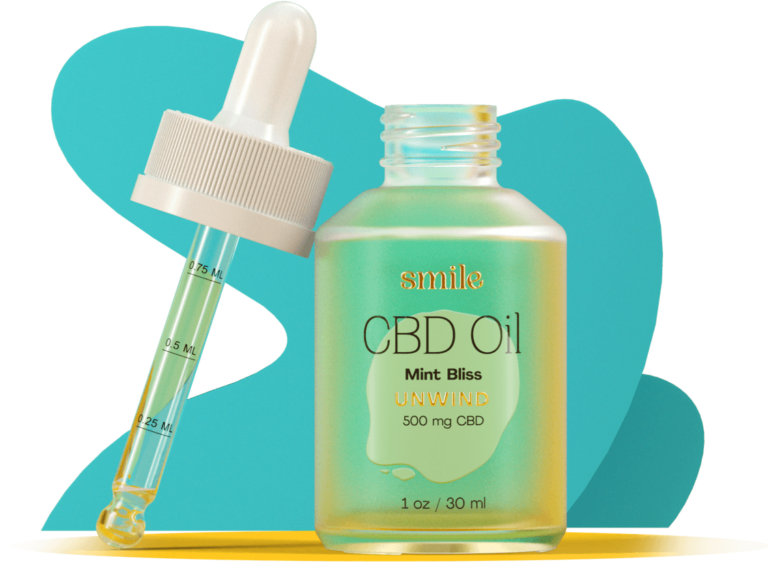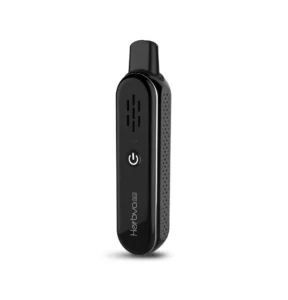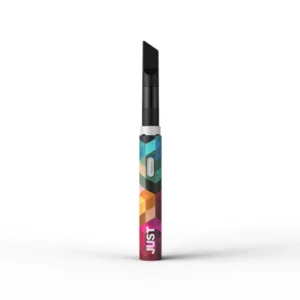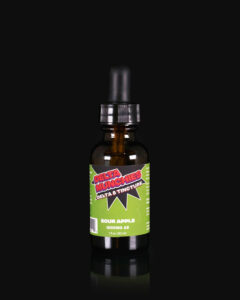CBD may boost hunger and help in weight loss, but it may also promote weight gain. A change in appetite is one of CBD’s most prevalent negative effects. Herein is everything you need to know about CBD oil and weight gain, including how it affects appetite, obesity, and the possible side effects.
Marijuana’s cannabidiol ingredient, more generally known as CBD, has recently increased in popularity. Many people are turning to CBD oil made from the flower, leaves, or stalks of cannabis plants. However, some consumers worry that CBD products, such as tincture oil, would make them gain weight, even though no research has shown that CBD affects body weight. Many people are also suspicious about CBD’s ability to help them lose weight. It’s still not known if the rise in appetite that some CBD users report is linked to an increase in body mass. See whether CBD makes you eat more if you’re concerned about gaining weight.
What Is CBD Oil
CBD, or cannabinoid, is among the most significant active components in cannabis. CBD, a non-psychoactive cannabinoid, is not what most people think of when they think of cannabis. In children and young adults with epilepsy, Tzadok et al. (2016) noted that CBD reduces seizure frequency and severity. CBD’s health advantages are ascribed to its interaction with the endocannabinoid system or ECS, which is the subject of continuing medical investigation. Mammals (including humans) have an endocannabinoid system that maintains homeostasis and controls vital bodily functions. According to Fine & Rosenfeld (2013), the biological effects of CBD and THC include reduced inflammation and pain reduction when they connect to the endocannabinoid receptors (CB1 receptors and CB2 receptors) in the body.
Could CBD Cause Weight Gain
CBD may have a weight loss-friendly effect, but it also has the potential to promote weight gain. In certain trials, CBD has been proven to stimulate hunger. Appetite alteration is a common negative effect of CBD medication. Aguirre-Velázquez (2017) interviewed one hundred seventeen parents of children with epilepsy. Thirty percent of the parents indicated that CBD oil substantially impacted their children’s appetite despite reducing their children’s epileptic symptoms. There are conflicting outcomes in the research on the appetite-suppressing properties of CBD. Iffland & Grotenhermen (2017) gave children with epilepsy up to 11.4mg of CBD per pound of body weight (25 mg per kg). The appetites of some children increased, whereas those of others decreased. The full impact of CBD on appetite needs to be studied further, as it appears to differ. When using CBD, several things can affect hunger, such as heredity and the type of product utilized.
CBD Oil: Does It Increase Appetite
While some studies have shown that CBD can help people eat less, others have shown that it can make them hungrier. Changing one’s appetite is one of CBD oil’s most prevalent negative effects. According to Tzadok et al. (2016), some parents of children with epilepsy treated with CBD reported increased appetite for their children. According to Richard & Paul (2017), some children with Dravet syndrome had an increase in hunger, whereas others had a decrease in appetite. To properly understand the effects of CBD on appetite, further research is needed, and it may differ from person to person or dosage. There is currently no solid proof that CBD oil can be used as an appetite suppressant or stimulant.
Does CBD Oil Increase Hunger?
It’s widely believed that marijuana, like CBD, also derived from the cannabis plant, causes an increase in appetite. Foltin et al. (1988) suggested that because of the THC, marijuana usage has been linked to a 40 percent increase in daily calorie consumption in one study. Even though the participants’ caloric consumption at meals didn’t increase considerably, they ate snacks more often. Because CBD is a component in marijuana, it is possible that its effects on appetite have not been fully explored. Researchers have shown a link between weight management and cannabinoids as a whole.
CBD Oil; Metabolism
According to Clark et al. (2018), cannabis compounds raise the metabolic rate for a short period. The body burns more calories due to faster metabolism. Also, Bar-Sela et al. (2019) noted that CBD oils could help people lose weight by decreasing their desire for food and increasing the calories burned. The browning of fat white cells, which occurs when CBD is administered, can also help boost metabolism and increase the number of calories expended. Anyone wanting to shed pounds may find this very useful.
Can CBD Lower the Risk Of Obesity?
Another indirect way that CBD may help with weight loss is by reducing the likelihood that a person will acquire weight and become obese (Bielawiec et al., 2020). Moltke & Hindocha (2021) found that CBD helped people sleep better and reduce stress. In addition to being a key risk factor for obesity, these factors are also critical to a healthy lifestyle. CBD has also been proven to help manage blood sugar and avoid insulin resistance by speeding up glucose metabolism. This has numerous health benefits, including weight loss and a lower risk of getting diabetes.
Risks Associated with Taking CBD
A product’s purity and potency can affect its safety. If you’re concerned about drug testing, look for products that undergo third-party lab testing to see if they include full or broad-spectrum CBD. Unlike broad-spectrum, full-spectrum may include trace amounts of THC. You should also be aware of possible negative effects and medicine interactions while purchasing high-quality CBD products. Iffland & Grotenhermen (2016) noted that CBD’s most common side effects include:
- Drowsiness
- Diarrhea
- Appetite changes
- Changes in weight
There’s still work to be done on CBD’s potential health advantages, so there’s still time to learn more about it. The following is an update on our understanding of some of these effects:
Conclusion
CBD may help your body work better and be more balanced as one of the many health benefits of using it. People who take CBD oil report that it has a calming effect on the body and mind, improving one’s motivation to get things done. As long as you’re in a good mood, doing activities like exercising or maintaining a healthy lifestyle food plan is a positive experience.
References
Aguirre-Velázquez, C. G. (2017). Report From A Survey Of Parents Regarding The Use Of Cannabidiol (Medicinal Cannabis) In Mexican Children With Refractory Epilepsy. Neurology Research International, 2017.
Bar-Sela, G., Zalman, D., Semenysty, V., & Ballan, E. (2019). The Effects Of Dosage-Controlled Cannabis Capsules On Cancer-Related Cachexia And Anorexia Syndrome In Advanced Cancer Patients: Pilot Study. Integrative Cancer Therapies, 18, 1534735419881498.
Bielawiec, P., Harasim-Symbor, E., & Chabowski, A. (2020). Phytocannabinoids: Useful Drugs For The Treatment Of Obesity? Special Focus On Cannabidiol. Frontiers In Endocrinology, 114.
Clark, T. M., Jones, J. M., Hall, A. G., Tabner, S. A., & Kmiec, R. L. (2018). Theoretical Explanation For Reduced Body Mass Index And Obesity Rates In Cannabis Users. Cannabis And Cannabinoid Research, 3(1), 259-271.
Fine, P. G., & Rosenfeld, M. J. (2013). The Endocannabinoid System, Cannabinoids, And Pain. Rambam Maimonides Medical Journal, 4(4).
Foltin, R. W., Fischman, M. W., & Byrne, M. F. (1988). Effects Of Smoked Marijuana On Food Intake And Body Weight Of Humans Living In A Residential Laboratory. Appetite, 11(1), 1-14.
Iffland, K., & Grotenhermen, F. (2016). Safety And Side Effects Of Cannabidiol–A Review Of Clinical Data And Relevant Animal Studies. European Industrial Hemp Association Available At: Www. Eiha. Org (Accessed 14, 2017).
Moltke, J., & Hindocha, C. (2021). Reasons For Cannabidiol Use: A Cross-Sectional Study Of CBD Users, Focusing On Self-Perceived Stress, Anxiety, And Sleep Problems. Journal Of Cannabis Research, 3(1), 1-12.
Richard, O. N., & Paul, O. B. (2017). Medical Marijuana: Basic Scientific View.
Tzadok, M., Uliel-Siboni, S., Linder, I., Kramer, U., Epstein, O., Menascu, S., … & Ben-Zeev, B. (2016). CBD-Enriched Medical Cannabis For Intractable Pediatric Epilepsy: The Current Israeli Experience. Seizure, 35, 41-44.
Crystal is a qualified doctor and a sex and relationships adviser at Dimepiece LA. In her spare time, she enjoys nature and is a budding tennis enthusiast. Crystal is involved with several governmental and educational initiatives aimed at increasing awareness about sexual health and making free advice more accessible to everyone.
[email protected]
- CBD For Sleep By Just CBD-cSlumber Serenade: A Restful Journey with Just CBD’s CBD for Sleep - October 10, 2023
- What is the Bioavailability of CBD? - February 20, 2023
- Full spectrum CBD+THC gummies - October 23, 2022















